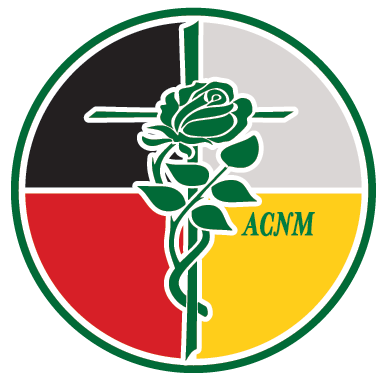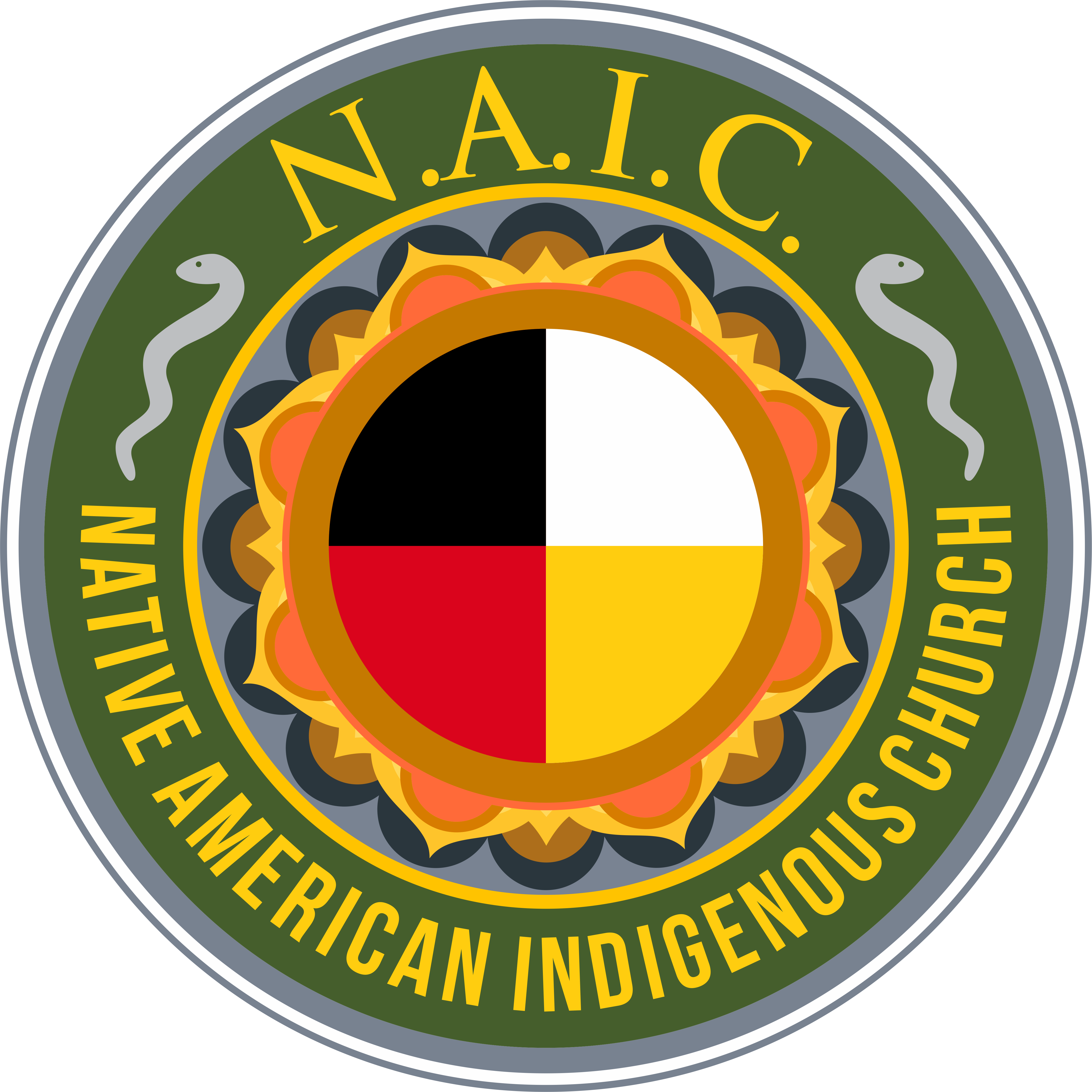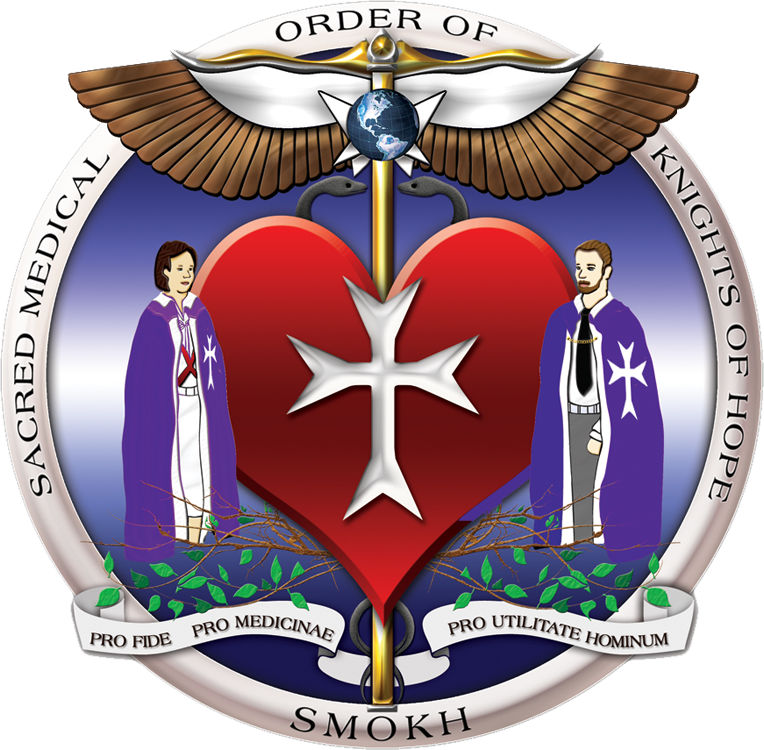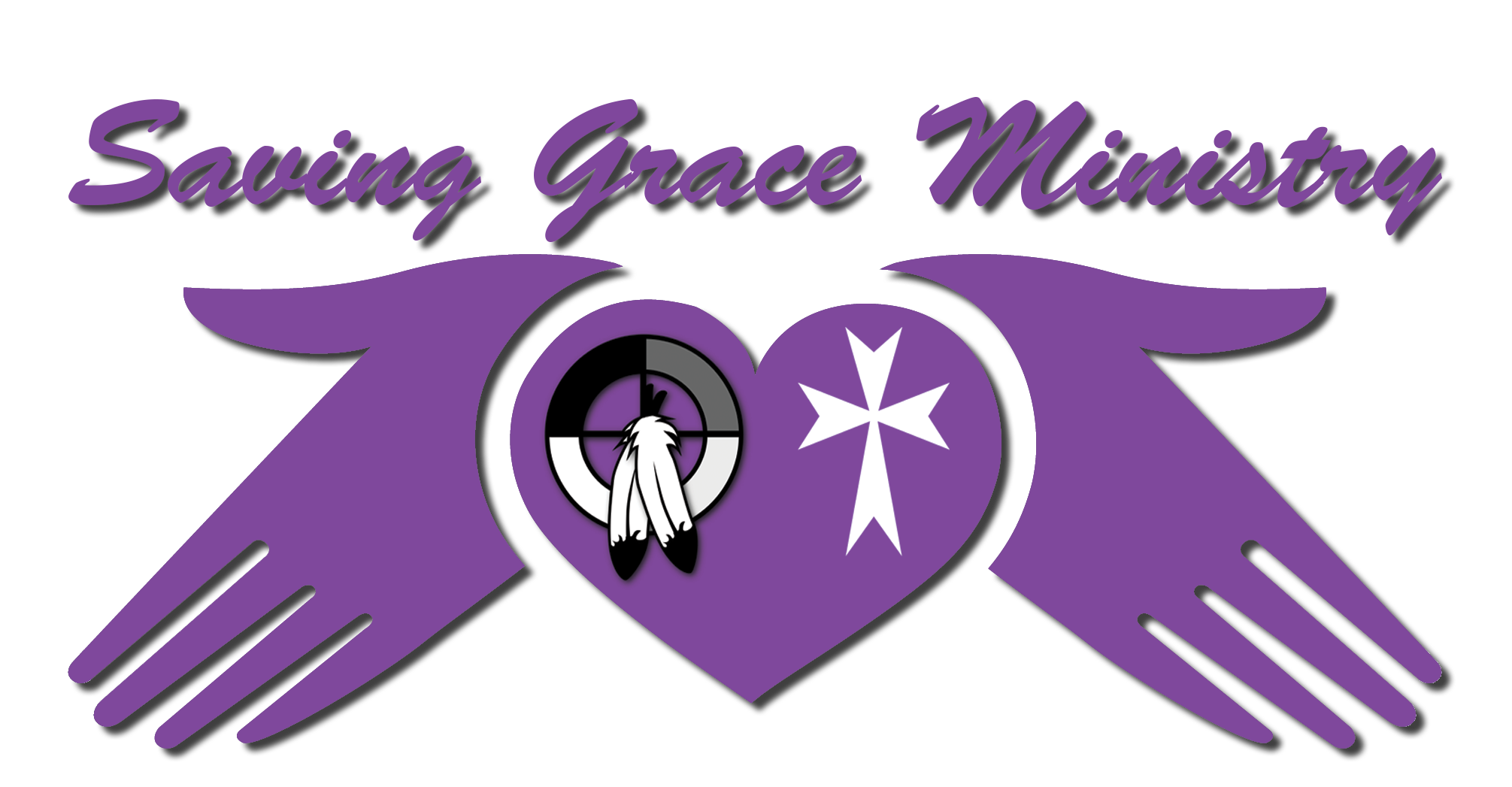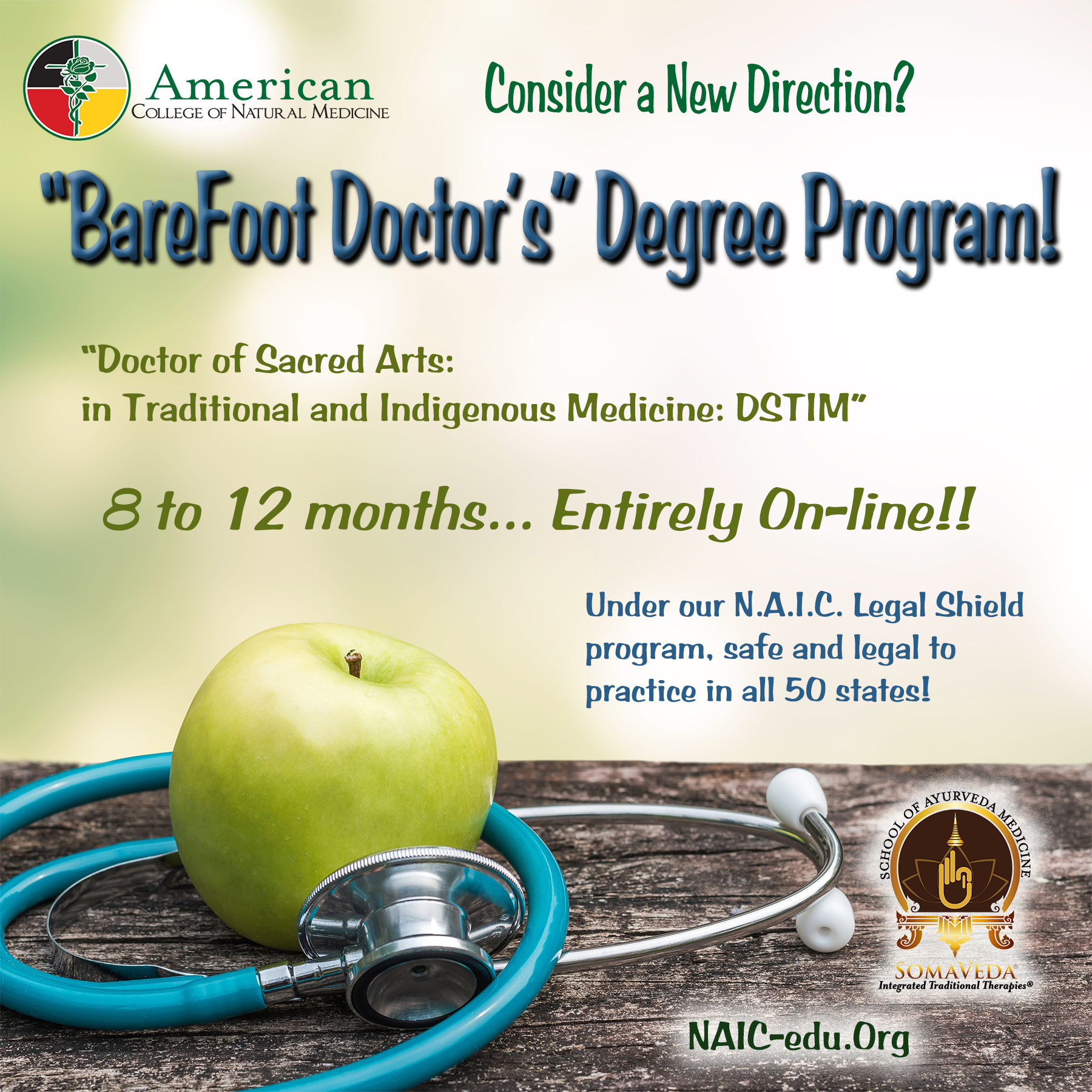
Doctor of Sacred Traditional & Indigenous Medicines (D.S.T.I.M.)
(Dean of Graduate Natural Medicine: Prof. Anthony James MSc.(Clinical Herbology), D.N.M. (C), N.D. (T), M.D. (AM), D.O.M. (Acu), D.P.H.C. (h.c.), Ph.D. (I.M.), Ph.D. (Hospitaller Medicine h.c.), D.M.M., R.A.A.P., U.T.T.S., MSGR./CHEV., Ordained Native Bishop Eastern Orthodox Catholic Church of the East in Brazil, Dean, Professor, Director of Education and Traditional Medicine
GENERAL DSTIM Degree COURSE GOALS & OBJECTIVES
The Florida State D.O.E. will authorize the 1134 class hour/D.S.I.T.M. Doctor of Arts Degree, Commission on Independent Authorized N.A.I.C. Seminary: American College of Natural Medicine.
The entire course of study prepares one to practice Spiritually based Sacred Traditional, Indigenous, and Natural Medicine and to be able to practice legally.
The D.S.T.I.M. program is also designed to prepare students to apply to various national and internationally recognized associations for natural medicine for recognition, registration, authorization, and licensure (N.A.I.C., LCHT Legal Shield, S.M.O.C.H.). To ensure continued career success, the graduate will continue to learn new and current information related to techniques, trends, and methods for career development in natural medicine and related fields. The graduate will consider this continuing education a fundamental part of professional growth and development.
Please note! The D.S.T.I.M. Degree program is designed for an average student to satisfactorily complete the program in 8 to 12 months from the start date. The program is self-paced, online, and distance learning, requiring a disciplined approach. A.C.N.M. is super generous in that we give you a maximum of 24 months of access before the enrollment access ends. Beginning month “#25”, there will be a flat rate of $185.00 per month until you graduate, suspend for non-activity, or Voluntary withdrawal, whichever comes first. Please see the A.C.N.M. College Catalog PDF on the Home Page for specific policy details.
IMPORTANT NOTE! This D.S.T.I.M. Diploma/ Doctor of Sacred Arts degree program allows the Authorized Practitioner, Therapist, Minister / Clergy Practitioner to begin legally practicing now (Under N.A.I.C. Tribal Org Authorizations). It lays the core prerequisite for our more advanced Post-Graduate Doctoral Programs: D.S.N.M. and Ph.D. Ayurveda Medicine.
Doctor of Arts: Sacred Traditional & Indigenous Medicines (D.S.T.I.M.) Program Studies and
Traditional Indigenous Medicines Curriculum Purpose, Goal, Learning Objectives, and Competencies:
Topics for Online Resource Library:
- Indigenous and Traditional Sacred Medicine origins and practices.
- Classical Indian Ayurveda (Specific and detailed area of emphasis)
- Advanced Ayurveda Medicine: 180 lessons/ 300 hr.. Course included!
- SomaVeda® Thai Yoga Therapy (Prerequisite Live or Online: Not Included in Full Tuition… At additional cost.)
- Traditional Native American and Indigenous Aboriginal Medicine: 101
- Traditional Native American and Indigenous Aboriginal Medicine: 102
- Filipino Healing (Ablon/ Hilot)
- Folk Medicine (Southern/ Appalachian Traditions)
- Yunani/ Islamic Medicine
- Monastic Renaissance Medicine
- Norse Indigenous Medicine/ Viking Medicine
- Shamanism/ Plant, Herb Sacrament, and Transcendental (Religious) Medicines
- Spanish Colonial Medicine (In America)
- W.I. Indigenous Healing/Caribbean Traditional Medicine
- AFRO-CARIBBEAN MEDICINE
- Universal Prerequisite: 17 Individual Pre-med-ministry courses. (20hr. Included) (May be waived with a previous qualifying medical degree)
- Biblical-Based Indigenous Medicine
- D.S.T.I.M. Legal Guidelines for Holistic Alternative and Complementary Providers
Our teaching approach gives the practitioner more than an affordable alternative to new educational vistas by combining resident studies and distance learning.
These are not ordinary courses with ordinary content. Each class is designed to be a life-changing ascent toward becoming a physician of Sacred Natural Medicine (Sacred Nature Cure).
Purpose:
The core Traditional & Indigenous Natural Medicines (Medicine of Hope-Monastic Medicine) Religious Therapeutics, Humanitarian Aid Mission Services, and Social Work curriculum will provide students with the opportunity to begin acquiring an understanding of the unique role of the Doctor of Sacred Traditional & Indigenous Medicines (Sacred Nature Cure) family practitioner and Counselor, and the basic knowledge, skills, and attitudes necessary to care for patients of all ages. Students will gain these abilities by engaging in structured learning activities, both outpatient and inpatient. Students must take calls, attend conferences, and read suggested literature. These will represent a core of behaviors encompassed by the Doctor of Arts in Traditional & Indigenous Medicines/ Traditional Monastic family minister/ practitioner/ counselor and Humanitarian Aid Mission Services and Social Work, which prepare them for a unique role in patient management, problem-solving, counseling, and coordination of health care and Humanitarian Aid Mission Services for the individual and the family unit.
Goals:
1. Refine basic clinical skills essential to practice in a primary care setting. Specifically, students will be able to:
Demonstrate interviewing skills as well as physical examination skills.
Communicate with the patients effectively.
2. Acquire the knowledge and skills to perform standard traditional and indigenous medicine ministerial physician procedures. They will know the indications, contraindications, and complications.
3. Use a spiritually-based family medicine approach to diagnose and manage common illnesses seen in a family medicine setting. Students will have appropriate knowledge and should be able to organize information, document data, differential diagnoses, treatment, and plan.
4. Develop sensitivity to their patients’ psycho-social, familial, socioeconomic, and community aspects.
5. Learn the importance of interaction with other physicians and specialists. Students will understand the concept of family medicine and the rewards and demands of family physician life. They will also show that they know the importance of continuity of care, coordination of care with other consultants, and cost-effective approaches to treating patients.
6. Fulfill the diverse and demanding roles of a minister, clergy, and religious/ pastoral Traditional and indigenous medicines counselor- Holistic physician, Humanitarian Aid Mission Services under the authority of N.A.I.C. Legal Shield Licentiate-License/ SMOKH, serving the health and well-being needs of indigenous, native, and non-native populations using both traditional and elegant evolving and scientific methodologies.
The DSTIM diploma is a vital part of the NAIC/ SMOCH qualifications for Sacred Healer and Knight-Dame Protected Person Humanitarian Aid Diplomatic Core requirements.
NAIC Legal Shield LCHT Holistic License Program qualifies as part of the SMOKH (Sacred Medical Order of the Knights of Hope) Sanctified Healer Ordination and ministry authorizations. SMOKH Membership and Passage fees are omitted unless authorized in writing by NAIC.
Learning Objectives (Core Competencies):
A. Systems-Based Practice
1. In general, to demonstrate knowledge of the health care system and understand how to use resources to provide optimum patient care effectively.
2. Specifically, to demonstrate:
You are a cooperative and effective healthcare team member (Sacred Holistic Medicine).
Working with the health care team in guiding patient management. (Sacred Traditional & Indigenous Holistic Medicines)
We are handling day-to-day responsibilities adequately.
Seeking responsibilities and making an effort to fulfill them.
They are being appropriately attentive to detail.
Knowledge of patient/ communicant management duties relating to systems issues, system resources, and regulatory affairs (e.g., engaging ancillary health care providers, safe care, formulary, Holistic, Homeopathic, and Herbal). (Sacred Holistic Medicine)
B. Professionalism
1. To demonstrate a commitment to professional responsibilities and sensitivity to a diverse patient population.
2. Specifically, to demonstrate:
Respect and honesty.
Compassion for patients/ communicants.
Respect for patient confidentiality.
Acceptance of criticism and feedback.
Motivation to learn and improve.
Good work ethic.
Punctuality.
Preparedness.
C. Interpersonal Skills and Communication
1. In general, to demonstrate effective information exchange and teaming with patients, their families, and other health professionals.
2. Specifically, to demonstrate:
Awareness of the relevance of psycho-social factors, cultural diversity, and support systems to healthcare.
Application of this knowledge in the care of individual patients.
Good communication skills and rapport with patients/ communicants, families, other health care ministers, counselors, professionals, staff, and supervisors.
D. Patient/Communicant (Relationship) Centered Care
1. To demonstrate compassionate, appropriate, and effective care for treating and promoting health problems.
2. History, specifically to demonstrate:
Ability to elicit a complete and accurate history.
Ability to report essential data from records.
Ability to formulate a relevant and accurate assessment and plan.
3. Physical Examination, specifically to demonstrate:
Knowledge and references to perform an efficient, accurate, and thorough examination using indigenous and traditional assessment protocols, including aspects of differential diagnosis.
Ability to report significant abnormalities.
4. Written History and Physical; Specifically to demonstrate:
Ability to document an accurate, well-organized, and legible history and physical.
Ability to document comprehensive and systematic assessments.
5. Progress Notes; Specifically to demonstrate:
Ability to document a legible and informative note that reflects the patient’s problems.
Ability to document an analytical assessment of the management.
6. Oral Presentation, specifically to demonstrate:
Ability to give a focused presentation that includes all the essential information.
Understanding is achieved by the appropriate selection of facts. Minimal use of notes.
Good eye contact and clear and understandable spoken English.
E. Practice-Based Learning and Improvement
1. In general, to demonstrate appraisal and assimilation of scientific evidence, evaluation, and improvement of patient care.
2. Improvement in Practice, specifically to demonstrate:
Ongoing reading about current clinical problems.
Appropriate access to clinical information and online resources.
Ability to apply indigenous, traditional medical evidence to clinical scenarios.
Ability to supply cognitive knowledge to clinical care patients.
Progressive learning from previous errors.
3. Improvement in self-directed learning, specifically to demonstrate:
Self-assessment, motivation, and initiative.
Improvement with feedback.
Attempt to meet set goals.
We are preparing in advance.
Appropriate reading.
F. Tenets of Sacred Traditional and Natural Medicine and Wellness
1. To demonstrate appropriate knowledge of established and evolving indigenous and traditional medicine approaches, including bio-medical, clinical, and cognate sciences, and apply this knowledge in patient/ communicant care.
2. Knowledge base; Specifically, to demonstrate:
Good fund of knowledge and understanding, including population-based and evidence-based traditional and natural medicine.
Ability to ask insightful questions.
Meaningful participation in discussion and decision-making.
Knowledge of basic pathophysiology.
Good understanding of the diagnostic approach.
3. Problem-solving, specifically to demonstrate:
Integration of relevant primary and clinical scientific knowledge and clinical judgment.
Ability to elaborate appropriate differential diagnoses and therapeutic approaches.
4. Subject-specific;
Knowledge of the evaluation and management of common psychological and behavioral issues seen by traditional natural, indigenous medicine practitioners (e.g., anxiety, depression, eating disorders, developmental delays, learning disabilities, substance use, and addiction).
Knowledge of traditional, Holistic, Indigenous (U.N.- WHO defined), Humanitarian Aid Mission Services, social Work, Native American, and Bible-based Holistic nutrition and nutritional health.
Understanding of “end of life” issues, palliative care, and hospice care., sensitivity to psychological, socioeconomic, cultural, and community aspects of patient care, understanding of the continuity of care, cost-effective care, and coordination of care with other ministers, clergy, medicine persons, counselors, naturopaths/ nature cure, physicians, and consultants.
The above listed are in addition to those learning objectives and competencies acquired in the undergrad prerequisite programs, including but not limited to Native American Healing and Medicine, Ayurveda and Yoga Therapy, Traditional Chinese Medicine, as well as Indigenous Traditional Native, Natural and Tribal Medicines, Biblical or medicine principles of religious, sacred and or ecclesiastical origins and Red Cross Approved or Authorized Adult CPR-AED, First Aid Certification. The CPR-AED Certification must be current or renewed as a requirement for issuing an A.C.N.M. Diploma and N.A.I.C. Legal Shield Licentiate license for Holistic Services.
NAIC Legal Shield LCHT Holistic License Program qualifies as part of the SMOKH (Sacred Medical Order of the Knights of Hope) Sanctified Healer Ordination and ministry authorizations. SMOKH Membership and Passage fees are not included unless authorized in writing by NAIC.
N.A.I.C. SomaVeda Accreditations, Approvals, and Recognitions

Educational Programs Accredited/ Recognized by the State of Florida D.O.E., N.A.I.C., and A.N.C.B.
If you want to start more simply and with less cost and commitment… Consider one of our other great educational programs:
SomaVeda® Thai Yoga Professional Online/ Distance Learning Certification Program. (164 hrs. No in-class hours)
1) (CTP1) Certified Thai Yoga Practitioner Program ( 164 CE hours.)
2) (A.L.C.) Ayurvedic Lifestyle Counselor Certification/ Ayurveda Lifestyle Consultant (650 CE Hours)(Meets or exceeds Association of Ayurveda Professionals of North America- A.A.P.N.A. Guidelines for Membership)
3) (TCP) SomaVeda® Thai Yoga Teacher Certification Program (1028 CE hours: The most comprehensive Thai Yoga teacher training in the country)
Programs at http://ThaiYogaCenter.Com
Call or write to us today!
N.A.I.C. Inc.( American College of Natural Medicine/ Thai Yoga Center)
(706) 358-8646
